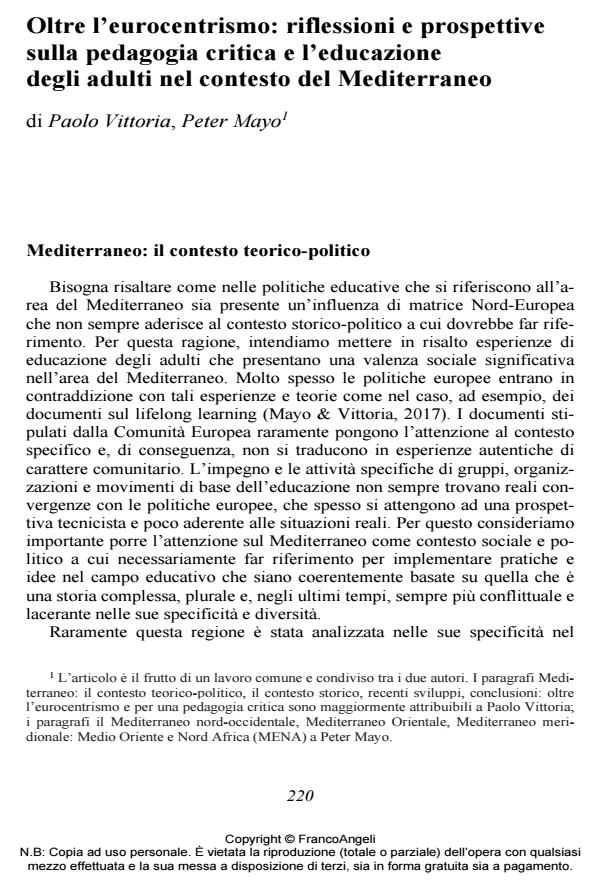Beyond eurocentrism. Reflections and perspectives on critical pedagogy and adult education in the Mediterranean context
Journal title EDUCATIONAL REFLECTIVE PRACTICES
Author/s Paolo Vittoria, Peter Mayo
Publishing Year 2017 Issue 2017/1
Language Italian Pages 22 P. 220-241 File size 244 KB
DOI 10.3280/ERP2017-001013
DOI is like a bar code for intellectual property: to have more infomation
click here
Below, you can see the article first page
If you want to buy this article in PDF format, you can do it, following the instructions to buy download credits

FrancoAngeli is member of Publishers International Linking Association, Inc (PILA), a not-for-profit association which run the CrossRef service enabling links to and from online scholarly content.
This article is intended to provide an understanding of the role of adult education and critical pedagogy in the Mediterranean context. It starts off with a brief reflection on the history and present situation in this region. Embracing a perspective that is not eurocentric but anti-colonialist and grounded in participatory democracy, the article is organised around three areas: Northern Mediterranean, East Mediterranean and Southern Mediterranean. These categories are used for simply heuristic purposes; we acknowledge that these are also eurocentric constructs. The article therefore maps out, in an introductory manner, a specific terrain of experiences. It is also one that comprises authors/practitioners connected to the area of adult education. Both initiatives and the authors to whom we refer provide a significant contribution to the area, specifically from a critical pedagogical perspective. It sheds deeper light on these experiences and theoretical proposals in light of the social and historical complexities in the Mediterranean, throwing into relief the lack of suitability of EU ‘one shoe fits all policies’ that are often at odds with the specific realties in communities ensconced in different parts of the world. Grounded in a historical and critical analysis, this article argues for a Mediterranean adult education perspective predicated on critical, dialogical and anti-colonial thinking and practices.
Paolo Vittoria, Peter Mayo, Oltre l’eurocentrismo: riflessioni e prospettive sulla pedagogia critica e l’educazione degli adulti nel contesto del Mediterraneo in "EDUCATIONAL REFLECTIVE PRACTICES" 1/2017, pp 220-241, DOI: 10.3280/ERP2017-001013